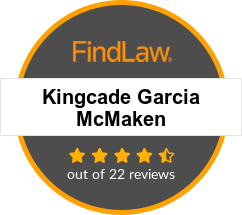Debt Relief Through Settlement and Consolidation: Reality or Pipe Dream?
Almost everyone has heard or seen the advertisements for debt settlement companies, enticing people with the prospect of settling their credit card debts for a fraction of the outstanding balances. According to a statement by assistant attorney general in West Virginia, Norman Googel, to the New York Times, the targets are middle-class and lower middle-class people who had incomes but were using credit cards to survive. The Times reports that the unemployment rate is near double digits and 6.7 million people have been out of work for six months or longer, meaning the debt settlement business is booming.
Allegations of Unfair Practices
Usually, the debt settlement company will direct an enrolled client to open a separate account and make one deposit to that account instead of paying off multiple card balances each month. When the balance is sufficient, company negotiators work to settle the outstanding balances. In the meantime, the debt settlement company withdraws upfront fees – sometimes 15 to 20 percent of the debt – from the account before any settlement has been reached.
What the companies fail to tell their clients is that “when you stop sending the money, creditors get angry. Collection agents call. Sometimes they sue. People think they’re settling their problems and getting some relief, and lo and behold they get slammed with a lawsuit,” noted Andrew Pizor, staff lawyer at the National Consumer Law Center.
The Fallout
According to the Times, the industry casts itself as the little guy to the big banks in this, maintaining that the organizations exist to advocate for consumers. However, since 2004, at least 21 states have brought over 120 enforcement actions against debt relief companies. State attorney generals and consumer watchdogs say the industry’s proceeds come at the direct expense of financially troubled Americans. In fact, the industry’s own figures indicate that three years after enrolling, only 34 percent of customers had either completed the programs or were still saving for settlements.
Financial Freedom’s chief executive reportedly explained the low completion rate by likening debtors to people who join a gym and hire a personal trainer, but then neither cut back on eating nor show up at the gym, saying that at some point, the client has to take responsibility for his or her own circumstances.
However, state and federal authorities are taking aim at the industry. The Federal Trade Commission has proposed regulations banning upfront fees and a proposed Congressional bill would cap fees that a debt settlement company may charge at five percent of the savings recouped by customers. Additionally, several states have pending legislation to cap fees. Consumers can expect an even greater marketing and enrollment push by debt settlement companies in the wake of the pending legislation.
Those facing mounting debts due to a job loss, injury or other circumstances should discuss their options with a knowledgeable attorney who can counsel on potential bankruptcy relief and available alternatives to bankruptcy.
















